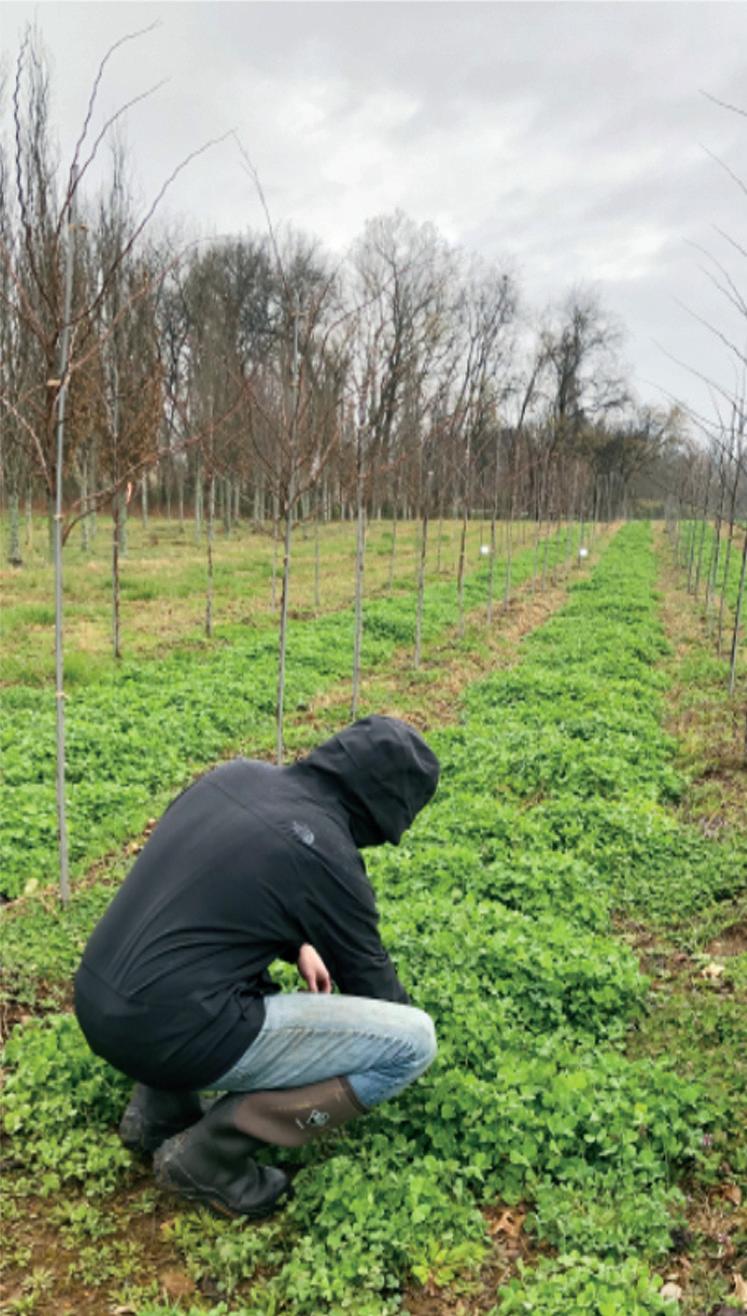
4 minute read
Federal Assistance for Tennessee Nursery Growers and Farmers
By Amy Dismukes, TSU Area Extension Specialist, TSU Otis L. Floyd Nursery Research Center
Its conception in the depression, its mission tried and true, the Farm Service Agency was created with the goal of supporting farms and farming communities. With more than 50 federal farm programs nationwide, there is assistance available for all farmers, including nursery producers, regardless of size or type.
Advertisement
Today, the two primary FSA areas are farm programs and loans. Farm programs include conservation assistance and disaster assistance programs, while loan programs offer credit. To learn more about how FSA programs may be able to assist you, make an appointment with your local FSA office, where you can get a detailed explanation of programs and benefits.
A few specific areas of interest that may benefit nursery producers include aerial photography, disaster programs such as the Tree Assistance Program (TAP), and even conservation options under the Conservation Reserve Program (CRP).
As you get started with FSA, your farm will be located utilizing aerial photography and assigned a farm number, which will be beneficial in managing future participation with FSA. This service can be very useful for producers with multiple sites or a broad inventory. Aerial mapping can assist in notating areas of concern, such as sites with active erosion or locations that have the potential to erode. Mapping can also include plotting different soil types and pH differences, or even in documenting locations that have had pest outbreaks for future reference.
February 2019 alone set record levels for rain. Excessive rainfall often translates into flooding in fields and the issues that accompany saturated soils. The Tree Assistance Program (TAP) has been reauthorized by the 2018 Farm Bill and is available to provide financial assistance to eligible orchardists and nursery tree growers seeking to replant or rehabilitate eligible trees, bushes Its and vines lost by natural disasters. This assistance includes help with recovery from crop losses due to pests and pathogens that subsequently occur on plants following stresses that were imposed on crops as a consequence of the natural disaster.
To qualify for TAP, eligible growers must have (1) suffered qualifying tree, bush or vine losses in excess of 15% mortality for the stand from a natural disaster, (2) own the plant material (not necessarily the land) when the disaster occurred and (3) replace said eligible plants within 12 months of approval. Lindsay Locke with the Warren County FSA office says the most important detail for growers regarding TAP is “don’t destroy it until it’s been seen, in the ground/site”. Often, the material in question is removed or culled before the adjuster can confirm, thus making the claim void. The adjusters aim to assess the materials as quickly as possible.
The Conservation Reserve Program (CRP) is another unique FSA program that focuses on land conservation. Signed into law in 1985, CRP is the largest private-lands conservation program in the US. In exchange for a yearly rental payment, producers agree to remove environmentally sensitive land from production and to plant species that will improve environmental health and quality. The long-term goal is re-establishment of land cover that is intended to improve water quality and prevent soil erosion. Thanks to voluntary participation, CRP has improved the lives and land of Tennesseans for generations to come.

TDA Plant Inspector Josh Basham pointing out beaver damage on a tree trunk
Additional conservation programs exist through the Natural Resources Conservation Service (NRCS), which is a sister companion to FSA. Objectives of NRCS’s conservation programs are to reduce soil erosion, enhance water supplies and quality and significantly decrease damage that occurs from floods and other natural disasters. The NRCS offers financial and technical assistance, as well as other services, to help producers employ and maintain conservation improvements and efforts on their farms and nurseries.

Surveying cover crop remnants at Hidden Valley Nursery
Photo courtesy of Amy Dismukes
Matt Feno, the NRCS District Conservationist in Middle Tennessee, in collaboration with Dr. Anthony Witcher, will be working with several growers during the next few years to examine cover crop usage for nursery production. If you have an interest in this area or are interested in trial information, please contact Dr. Anthony Witcher, awitcher@tnstate.edu, at the TSU Otis L. Floyd Nursery Research Center in McMinnville, Tennessee.
The Environmental Quality Incentives Program (EQIP) is administered by the NRCS and helps producers manage farming challenges through conservation. NRCS works directly with the producer to improve operations while simultaneously conserving natural resources. The goal of these practices is cleaner water and air and improved production, all through the development and implementation of conservation practices and tools. For information about FSA and/or NRCS programs, please contact your local FSA and NRCS offices.
As the 2019 season progresses, remember that new advances in production technologies and techniques are continually emerging. The TSU Area Extension Specialist is available to address pest issues and for best management practice updates and can be reached at (931) 815-5140 or by contacting the Area Extension Specialist at adismuk1@tnstate.edu.




